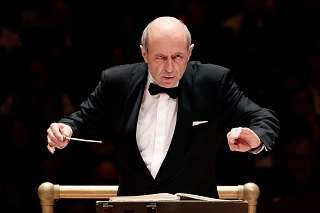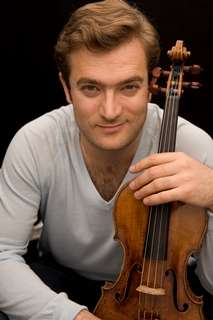|
Back
The Joys of the Unexpected New York
David Geffen Hall, Lincoln Center
02/23/2020 - & February 20, 2020 (Ann Arbor)
Antonín Dvorák: Legend, Opus 68, No. 10 – Místo klekání, from Four Choruses, Opus 29, No. 1 – Slavonic Dance, Opus 46, No. 7 – Violin Concerto in A Minor, Opus 53 – Symphony No. 8 in G Major, Opus 88
Renaud Capuçon (Violin)
Budapest Festival Orchestra, Iván Fischer (Conductor)

I. Fischer (© Jennifer Taylor)
“I like praying there at the window when I look out on the green and at the sky. I study with the birds, flowers, God and myself.”
Antonín Dvorák
Iván Fischer leads the greatest orchestras in the world with discipline and insight. But when it comes to his very own ensemble–the Budapest Festival Orchestra–he can let himself go, can experiment, play with his musicians and lead us to the sounds of surprise. Last year, he became a true iconoclast, prefacing a series of Hungarian classical songs (Bartók) with Hungary’s finest folk-singer singing the originals.
I doubt if he will do this with the all-Mahler concert Monday evening (Fred Kirshnit will write about this).
Last night, he began with three short works, each a surprise on its own. Who, for instance, outside of a Dvorák specialist, had heard the ten orchestral Legends? The two-piano version is fairly well known, but Iván Fischer took the climactic Tenth Legend with a breezy, nostalgic work of ineffable loveliness.
The Budapest Festival Orchestra did not play with the finesse of a NY Phil or Berlin Phil, but this subtle roughness was exactly what was required.
In fact, the sunshine of this Sunday afternoon was superfluous, Mr. Fischer gave us the radiance of Dvorák in the short opening work. As well as the single (alas) Slavonic Dance.
But what about the second work, “Evening’s Blessing”, one of Dvorák’s Four Choruses? Again, the conductor decided to have fun. His Budapest Festival Orchestra put down their instruments and sung in perfect harmony, this lovely Dvorák song!

R. Capuçon (© François Darmigny)
The only slight disappointment came in Renaud Capuçon’s performance of Dvorák’s Violin Concerto. This has nothing to do with the young French fiddler’s expertise, his sometimes ravishing tone, or the coordination with Mr. Fischer’s orchestra. In fact, it was a splendid performance of a decent Brahmsian Violin Concerto.
Here, then, was the problem. The Concerto can be played with Slavic brio, with a sense of the folkishness of the original themes. Or it can be played, as Mr. Capuçon played it, with a sense of Brahms studiousness, almost eschewing those wonderful Central European flourishes.
This was the performance yesterday afternoon. Mr. Capuçon’s skills could not be questioned, and the audience rightly applauded such a scintillating performance. Yet not until the final movement, an unalloyed series of dances, did he (or Mr. Fischer) work into the ethnicity of the piece.
One admits this is hardly easy to perform. Not for its digital skills as for its balancing on the Hamburg/Slavic cusp. Mr. Capuçon tried his best, yet he leaned toward the Germanic, in an evening of pure Czech wonders.
And of course the greatest wonder was Iván Fischer conducting his orchestra–an orchestra which he founded and nurtured, despite the scorn of Communist Hungarian bureaucrats, and which is today one of the leading orchestras of Europe. In this case, it was Dvorák’s Eighth Symphony.
The work can almost play itself. The mood changes, the carnival-like horn razzing, the great finale, the bird calls. But Ivȧn Fischer hardly lets any piece play itself. Nor did he allow his own Magyar heritage to shape its climaxes.
Instead, he played the first two movements with classical control. Yes, he allowed the most beautiful flute/piccolo avian solos (Gabriella Pivon did the honors), he brought those climaxes to fitting excitement in the opening. And the lyric second movement–a movement which literally breathes the air of the Czech countryside–was performed with all the grace necessary.
The joy was achieved in the dances of the scherzo, leading to a finale prefaced with fabulous trumpet solos. The orchestra was measured, almost stalwart start before the momentum. Did he slow down the orchestra to an almost largo pace before the end? Ah, that was good show-biz, the tension awaiting the surprise sizzling spine-tingling last measures. And well worth the wait.
For an encore, Mr. Fischer again gave the unexpected. The orchestra not only played, but sung in four-part harmony, a truncated Brahms F Minor Hungarian Dance.
Methinks had he the space, Mr. Fischer would have had the Budapest Festival Orchestra–and we in the privileged audience–Slavonically dancing as well!!
Harry Rolnick
|